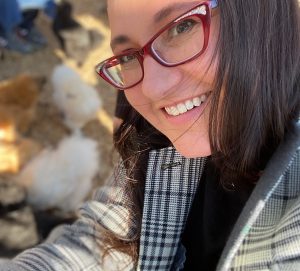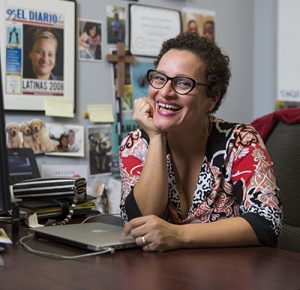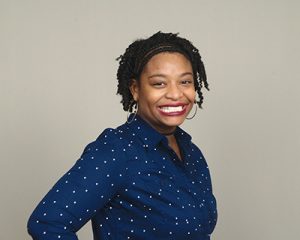CAA News Today
Jay Buchanan, Holly Gabelmann, Caroline Giddis, and Clarissa Chevalier: “Collaboration, finding purpose, occupying intermediate space and making noise together!”
posted Apr 09, 2021
Jay Buchanan is a theorist, poet, and arts orchestrator.
Holly Gabelmann is an artist, writer, and asker of questions. They are the co-creators of Idiosynchrony, a podcast and collective sonic artwork. www.idiosynchronypodcast.com
Caroline Giddis is a writer, emerging curator, and art historian of the long nineteenth century focusing on intersectional feminism.
Clarissa Chevalier is an interdisciplinary researcher, writer, and art historian specializing in modern and contemporary ecological art.They are the founders and co-editors of Tesserae Press, an online arts publication for emerging creative voices. www.TesseraePress.com
Sean Nash and Stephanie Maroney: Microbial Teachers and Fermentive Pedagogies
posted Apr 04, 2021
Join us for a conversation with Sean Nash, a visual artist and food fermentation experimentalist, and Stephanie Maroney, a feminist science and food studies scholar, as they discuss “Microbial Teachers and Fermentive Pedagogies.”
Sean Nash is a visual artist and food fermentation experimentalist. His multidisciplinary work integrates fermented foods with sculptures as edible, time-based, and socially engaged components of programs and exhibitions. Sean’s work has been shown nationally, with solo shows at the Kniznick Gallery at Brandeis (Krautsourcing, 2019), Plug Projects in Kansas City, MO (Lactobacillus Amongus, 2017), and Black Ball Projects in Brooklyn, NY (They/Them/Their, 2016). His work can be found at senash.com
Stephanie Maroney is a feminist science and food studies scholar creating collaborative projects on fermentation and mycology. She has published on the topics of queer fermentation praxis, the colonial afterlife of microbiome science, and probiotic dietary culture. Stephanie has a Ph.D in Cultural Studies and administers a community-engaged arts and humanities research program at UC Davis.
Stephanie Schwartz and Jorge Ribalta–Walker Evans: No Politics
posted Mar 29, 2021
In this conversation, the pair discuss Schwartz’s new book Walker Evans: No Politics. The first book to take seriously Evans’s refusal to act or work politically, Walker Evans offers a sweeping reassessment of American documentary and its histories. Opening with a discussion of Evans’s place in the canon as well as Schwartz’s efforts to problematise canonical histories of documentary, the podcast covers a range of topics, from the publication of Evans’s short, but punchy, review of photographic books, his 1931 essay “The Reappearance of Photography,” to the 1971 retrospective exhibition of his work at the Museum of Modern Art. At the centre of this conversation is a debate about Evans’s legacy, about how and why it needs to be reimagined today.
Stephanie Schwartz is an Associate Professor of the History of Art at University College, London.
Jorge Ribalta is an independent curator and photographer living and working in Barcelona.
CAA signs on to ACLS Statement in solidarity with Asian Americans and Pacific Islanders
posted Mar 29, 2021
CAA joins 36 member societies in solidarity with Asian Americans and Pacific Islanders in signing a statement by the American Council of Learned Societies (ACLS) condemning the appalling acts of racism, violence, and discrimination committed against these communities.
That statement asserts, “We find ourselves in a moment where, for good reason, we and many other Americans have been and continue to be focused intently on anti-Black racism. But we are reminded by the horrific events in Georgia this week and increased acts of violence over this past year linked to the COVID-19 pandemic, of the deep prejudices affecting Asians in this country. These and other attacks against the Asian-American community represent the latest chapter in our history of xenophobia, which tends to flare during times of crisis.” (ACLS American Council of Learned Societies)
Julie Hollenbach and Carla Taunton–Decolonization, Settler Responsibility, and Treaty Principles
posted Mar 14, 2021
The CAA Conversations Podcast continues the vibrant discussions initiated at our Annual Conference. Listen in as educators explore arts and pedagogy, tackling everything from the day-to-day grind to the big, universal questions of the field.
CAA podcasts are on iTunes. Click here to subscribe.
This podcast explores key concepts of decolonization, settler responsibility, and treaty principles. Join Dr. Julie Hollenbach in conversation with Dr. Carla Taunton in a dynamic dialogue that considers key ideas and concepts of decolonization. Hollenbach and Taunton discuss the potential roles and responsibilities of white-settler scholars in decolonizing and unsettling initiatives within museums, academia, and the classroom to include the movement towards decolonial accomplice focused methodologies.
Dr. Carla Taunton, a white-settler scholar, is an Associate Professor in the Division of Art History and Contemporary Culture at the Nova Scotia College of Art and Design University and an Adjunct Associate Professor in the department of Cultural Studies at Queen’s University. She is the Special Advisor to the VP Academic and Research, Social Justice and Decolonization. Her research contributes to arts-based critiques of settler colonialism, Indigenous arts and methodologies, contemporary Canadian art and activism, museum and curatorial studies, as well as theories of decolonization, anti-colonialism and settler responsibility. Her recent publications include, “Unsettling Canadian Heritage: Decolonial Aesthetics in Canadian Video and Performance Art,” with Sarah E.K Smith in Journal Canadian Studies (2018), “Embodying Sovereignty: Indigenous Women’s Performance Art in Canada,” in Narratives Unfolding (2017), and “Performing Sovereignty: Forces to be Reckoned With” in More Caught in the Act: An Anthology of Performance Art by Canadian Women (2016). She co-edited PUBLIC 54: Indigenous Art, the first special issue on global Indigenous new media and digital arts, and RACAR: Continuities Between Eras: Indigenous Arts (2017). She is an independent curator and was a curatorial team member for Abadakone at the National Gallery of Canada (2019). Taunton’s recent collaborative research projects include: The GLAM Collective, The Pilimmaksarniq/Pijariuqsarniq Project: Inuit Futures in Arts Leadership (2017), and The Archive/Counter-Archive: Activating Canada’s Moving Image Heritage (2017).
Julie Hollenbach is a queer white-settler scholar also at NSCAD University where she is an Assistant Professor of Craft History and Material Culture. Her work addresses craft practices and craft cultures at the intersections of history and location, tradition and ritual, contact and connection, meaning and use. Julie’s curatorial and academic research is influenced by queer, feminist, anti-racist and decolonial methodologies. If you’d like to learn more about her work, check out an article she published online with Studio magazine entitled, “Moving Beyond a Modern Craft: Thoughts on White Entitlement and Cultural Appropriation in Professional Craft in Canada,” or check out her recent curatorial project Unpacking the Living Room at Mount St. Vincent University Art Gallery. A website chronicling and documenting the exhibition can be found at: www.unpackingthelivingroommsvu.ca.
CWA Picks February-March 2021
posted Mar 12, 2021
February and March Picks from the Committee on Women in the Arts celebrate a selection of events, exhibitions, and calls for work and participation featuring feminist and womxn artists and address issues about social justice and ethics in intersectional and transnational perspectives.
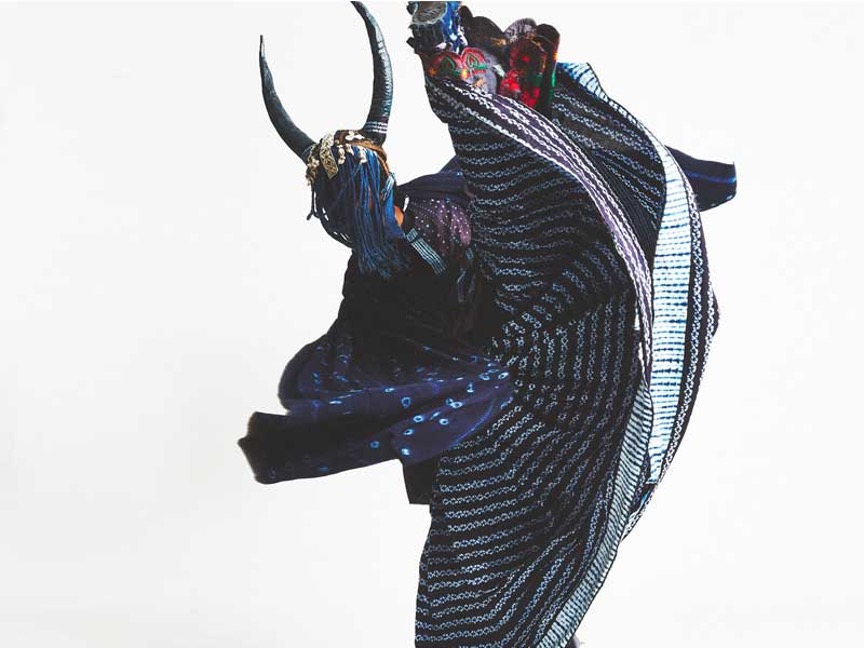
Dancer Christ Walker in his portrayal of Laura Anderson Barbata’s Rolling Calf in Intervention: Indigo, part of the exhibition Laura Anderson Barbata: Transcommunality, Newcomb Art Museum of Tulane University. Photo by Rene Cervantes.
Laura Anderson Barbata: Transcommunality
January 16–October 2, 2021
Newcomb Art Museum of Tulane University, New Orleans, LA
Laura Anderson Barbata’s (b. 1958) socially engaged, activist, and environmentally sustainable practice is on view in a dynamic exhibition curated by Laura Blereau at the Newcomb Art Museum. Transcommunality enriches bold concepts of global collaboration and cultural exchange, civil and indigenous rights, and human connection and belonging across geographical borders. Anderson Barbata was born in Mexico City, Mexico, and works between Mexico and the United States. This exhibition unites five projects and series across the Americas, showcasing a wide swath of media and community-based approaches such as street theater, arts education, printmaking and book making, textiles, wearable sculpture, photographs, and stilt dancing. Among the works on display are paper making techniques and workshops utilizing Ye’Kuana Amazon wood printing blocks for body printing and printmaking in Venezuela (Amazonian moriche palm fiber); fabric costumes worn by stilt dancers and carnival performers, including Moko Jumbies in Trinidad and Tobago and the Brooklyn Jumbies of New York, West Africa, and the Caribbean, as well as the significant artisan culture of los Zancudos de Zaachila from Oaxaca, Mexico. Transcommunality also documents Anderson Barbata’s extraordinary intervention and efforts to repatriate the body of Julia Pastrana, a nineteenth-century Mexican woman grotesquely exploited for her physical disabilities. As Anderson Barbata avers, reciprocity fundamentally underscores her artistic work and approach.
Mildred Thompson: Throughlines, Assemblages and Works on Paper from the 1960s to the 1990s
February 18–March 27, 2021
Galerie LeLong & Co., New York
A selected survey of Mildred Thompson’s (1936–2003) mature practice into the 1990s, Throughlines explores the African American artist’s dynamic experimentation in found and manipulated wood, free-standing assemblages and sculptures, and dynamic utilisation of abstraction in works on paper and prints.
February 6–March 9, 2021
Leslie–Lohman Museum of Art, New York
The first comprehensive retrospective on Chicana artist Laura Aguilar (1959–2018), Show and Tell presents more than 70 photographs and videos spanning three decades. The development of Aguilar’s performative, feminist, and queer genres encompass candid portrayals of LGBTQ+ and Latinx communities; nude self-portraits serve as powerful investigations on the complicated colonial histories of racial and sexual injustice and personal expressions on vulnerability and beauty.
January 21–May 8, 2021
Ulrich Museum of Art, Wichita, Kansas
This exhibition explores Renée Stout’s (b. 1958) print portfolio from 2012 titled Ghosts, currently in the collection of the Ulrich Museum of Art, and in dialogue with six Yoruba objects from present-day Nigeria in the Wichita State University’s Lowell D. Homes Museum of Anthropology. Stout’s seminal artistic research into the histories of African American heritage and the African diaspora are demonstrated in Ghosts, haunting monotypes that touch upon syncretic belief systems and visual narratives of Haitian Voudou and American Voodoo and Hoodoo, especially as these religions are expressed in marginalized Black communities.
February 25–April 17, 2021
Nara Roesler, New York
The inaugural solo exhibition in the US of Brazilian multidisciplinary artist Amelia Toledo (1926–2017), the artist is best known for her constructive investigations that traverse the material boundaries of the natural world and landscape, and offer new definitions of ecological concretism through the technical and physical examination of shells, stones, and wood. Toledo’s later Penetrables, on view, explore inhabitable space through hanging color fields as raw canvas and organic pigments. Although associated in her career with many of the foremost postwar neo-concrete Brazilian artists, including Mira Schendel, Tomie Ohtake, Hélio Oiticica, and Lygia Pape, Toledo maintained a separate identity. On her hands-on and observational approach to her practice, Toledo offered: “It’s not even just a question of difference processes; each material constructs itself, proposes itself in the form of certain consequences.”
Les Femmes Folles Presents: Feminists Connect
Launching March 2021
This curated online exhibition includes work by 40 international artists, artist statement and bios received in response to a call inviting participants to reflect on the theme Feminist Connect and the possibilities for the arts and feminist enquiry. Driven by feminist ethics of care, the curators of this online art exhibit, Sally Brown and Leslie C. Sotomayor, became actively invested in selecting artworks that engage through lived experiences and embodiments into conversations on larger social issues such as love, grief or invisibility. The curatorial process was dialogic and centered on co-creation of knowledge with care.
The Vagina Museum’s ‘Cliterature’ book club – Feminism, Interrupted
Thursday 22nd April 2021, 7:00 PM – 8:30 PM UK Time
Zoom
Cliterature, the Vagina Museum’s book club, welcomes everyone to engage in readings and discussions of fiction, non-fiction, essays and poetry. The April event focuses on a non-fiction book Feminism, Interrupted: Disrupting Power by Lola Olufemi, which calls to reclaim feminism from its neoliberal appropriations as a radical tool for fighting back against structural violence and injustices, including, among others, reproductive justice, transmisogyny and gendered Islamophobia.
February 1st – June 6th 2021
Zachęta – National Gallery of Art, Poland
Rhizopolis, a set design and an artistic installation, is not a phantasy. It welcomes us to a world of hypothetical future after an ecological catastrophe that is inevitable in the Antropocene. Imagining an underground city underneath a forest inhabited by refugees from the surface of Earth, Rajkowska calls into question our faith in continuous progress and civilizational development and expansion. In the context of the pandemic, Rhizopolis offers an opportunity to revisit survival scenarios and techniques and invites us to consider radical dependence and interconnectedness in which nature makes our lives possible.
Lorne M. Buchman, Nicole Mueller, and Amanda Adams–The Future of Art and Design Colleges: What’s Next?
posted Feb 26, 2021
The CAA Conversations Podcast continues the vibrant discussions initiated at our Annual Conference. Listen in as educators explore arts and pedagogy, tackling everything from the day-to-day grind to the big, universal questions of the field.
CAA podcasts are on iTunes. Click here to subscribe.
Lorne M. Buchman, President of ArtCenter College of Design and host of Change Lab podcast, speaks with Beyond the Studio co-hosts Nicole Mueller and Amanda Adams about the shifts happening in higher education, how art and design colleges are responding to the financial challenges of the pandemic, rethinking the model in order to increase sustainability, access, and affordability, what organizations can learn from adopting a mindset similar to that of individual artists, and key questions we should all be asking within the arts at large.
About Beyond the Studio: Beyond the Studio is a podcast that focuses on the behind the scenes work of visual artists— how they’re supporting and sustaining themselves and their creative work. Co-hosted by artists Nicole Mueller (San Francisco, CA) and Amanda Adams (Baltimore, MD), Beyond the Studio features candid conversations with contemporary artists, makers, and art world professionals about their business practices, time management, financial planning, and how they’re navigating the unique challenges of making a living, creatively. Artists are inherently resourceful, resilient, and ambitious, with a unique and diverse set of skills. Beyond the Studio wants to know how they’re connecting the dots in their own life, and demystify the process. It’s founded on the belief that by sharing these stories openly and honestly, artists will feel more empowered and become better equipped to live out their own creative life’s work. The podcast can be found on Apple Podcasts, Spotify, Stitcher, and on their website www.beyondthe.studio
About Lorne M. Buchman: Lorne M. Buchman is the fifth president of ArtCenter College of Design in Pasadena, California, an international leader in art and design education. During Buchman’s presidency, the College increased the undergraduate and graduate degree programs and realized record enrollments. Buchman previously served as president of both Saybrook University and California College of the Arts (CCA). Buchman holds a PhD from Stanford University and a BA from the University of Toronto. He founded Buchman Associates, a consulting firm focused on facility development projects for nonprofit organizations. A trained theater director and scholar, Buchman is the author of Still in Movement: Shakespeare on Screen and has taught and served as an administrative leader at the University of California, Berkeley.
About ArtCenter: Founded in 1930 and located in Pasadena, California, ArtCenter College of Design is a global leader in art and design education. ArtCenter offers 11 undergraduate and seven graduate degrees in a wide variety of industrial design disciplines as well as visual and applied arts. In addition to its top-ranked academic programs, the College also serves members of the Greater Los Angeles region through a highly regarded series of year-round continuing education programs for all ages and levels of experience. Renowned for both its ties to industry and its social impact initiatives, ArtCenter is the first design school to receive the United Nations’ Non-Governmental Organization (NGO) status. Throughout the College’s long and storied history, ArtCenter alumni have had a profound impact on popular culture, the way we live and important issues in our society.
Beyond the Studio
beyondthe.studio
CAA Welcomes Amy Raffel as Head of Content
posted Feb 26, 2021
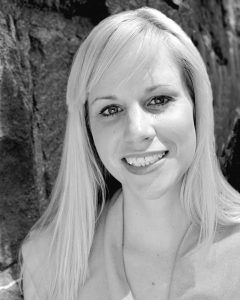
Amy Raffel
We are pleased to announce that Amy Raffel will be joining CAA as Head of Content. This newly created role is responsible for leading the development of a unifying digital-first content strategy for CAA and digital platforms. The role will define the overarching content mission, vision, and voice for CAA and ensure that the content strategy aligns with CAA membership needs. She will oversee CAA’s content and programs, intellectual property, professional training and skills, digital archiving, and publications. She will begin on March 1.
Amy Raffel has broad expertise in art history with a PhD degree from the CUNY Graduate Center and a Master’s degree from the Institute of Fine Arts (NYU). Her research focuses on 1980s downtown New York City, with a concentration on Keith Haring. She recently published her first academic book, Art and Merchandise in Keith Haring’s Pop Shop, as an independent scholar with Routledge. Prior to CAA, Raffel worked at the Queens Museum, developing and leading interpretation initiatives to increase audience engagement. She produced digital content, including audio guides, art talks, and tours, and created onsite resources, including visitor guides, didactics, and a number of interactive spaces – all based on audience research and assessment. She has also written and edited for several educational and art-related digital platforms, and taught art history to undergraduates at Lehman College.
CAA joins 22 other organizations in signing on to a statement by the American Historical Association
posted Feb 24, 2021
CAA joins 22 other organizations in signing on to a statement by the American Historical Association registering concern about a new policy issued by India’s Ministry of Higher Education/Department of Higher Education that “requires Indian scholars and administrators to obtain prior approval from the Ministry of External Affairs if they want to convene online or virtual international conferences, seminars, or trainings.” The AHA states that this policy is likely to “affect a wide range of scholarly exchanges that are critical to the free international expression of ideas” and “strongly maintains that government agencies should not intervene in the content of scholarly exchange.”
Meet CAA’s New Board Members
posted Feb 22, 2021
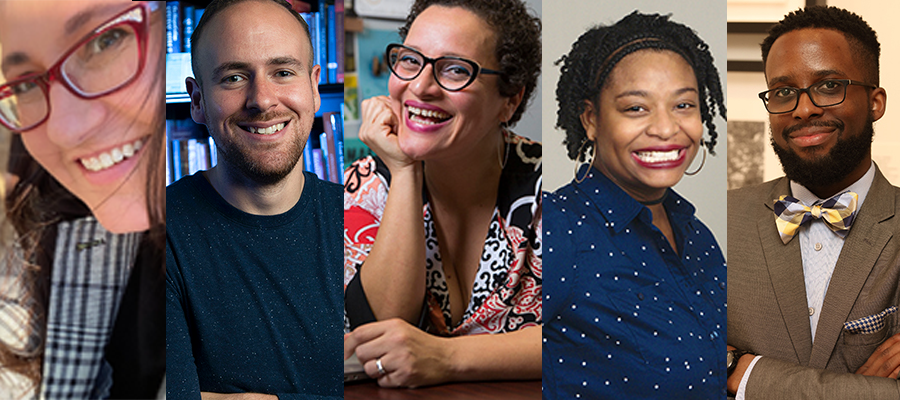
From left to right: Lara Evans, Roland Betancourt, Wanda Raimundi-Ortiz, Kelly Walters, and Kelvin Parnell
The results of the 2021 CAA Board of Directors Election were presented at the CAA Annual Business Meeting on Friday, February 12 at 2:00 PM as part of the 109th CAA Annual Conference.
We are grateful to all the candidates who put forward their names for consideration this year. The 2020-21 Nominating Committee selected six candidates for election for four-year terms and two Emerging Professional candidates, who were eligible for a two-year term. Voters were asked to select four of the six candidates for four-year terms, and one candidate in the Emerging Professional category.
CAA BOARD OF DIRECTORS ELECTION
We congratulate Lara Evans, Roland Betancourt, Wanda Raimundi-Ortiz, and Kelly Walters on their election by CAA membership for four-year terms and Kelvin Parnell on his election for a two-year term as an Emerging Professional board member.
Learn more about the new members:
Interim Director, Research Center for Contemporary Native Arts, Institute of American Indian Arts, Santa Fe, NM
Professor of Art History, University of California Irvine, Irvine, CA
Associate Professor, Studio Art, University of Central Florida, Orlando, FL
Associate Director, BFA Communication Design Program, Parsons School of Design, The New School, New York, NY
EMERGING PROFESSIONALS BOARD OF DIRECTOR CANDIDATES (TWO-YEAR TERM, 2021-2023)
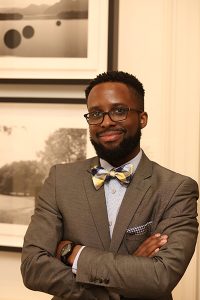
Ph.D. Candidate, Art and Architectural History, University of Virginia, Charlottesville, VA
The CAA Board of Directors is comprised of professionals in the visual arts who are elected annually by the membership to serve four-year terms (or, in the case of the Emerging Professional Board members, two-year terms). The Board is charged with CAA’s long-term financial stability and strategic direction; it is also the Association’s governing body. The board sets policy regarding all aspects of CAA’s activities, including publishing, the Annual Conference, awards and fellowships, advocacy, and committee procedures. For more information, please read the CAA By-laws on Nominations, Elections, and Appointments.
Thank you to all those who voted!



